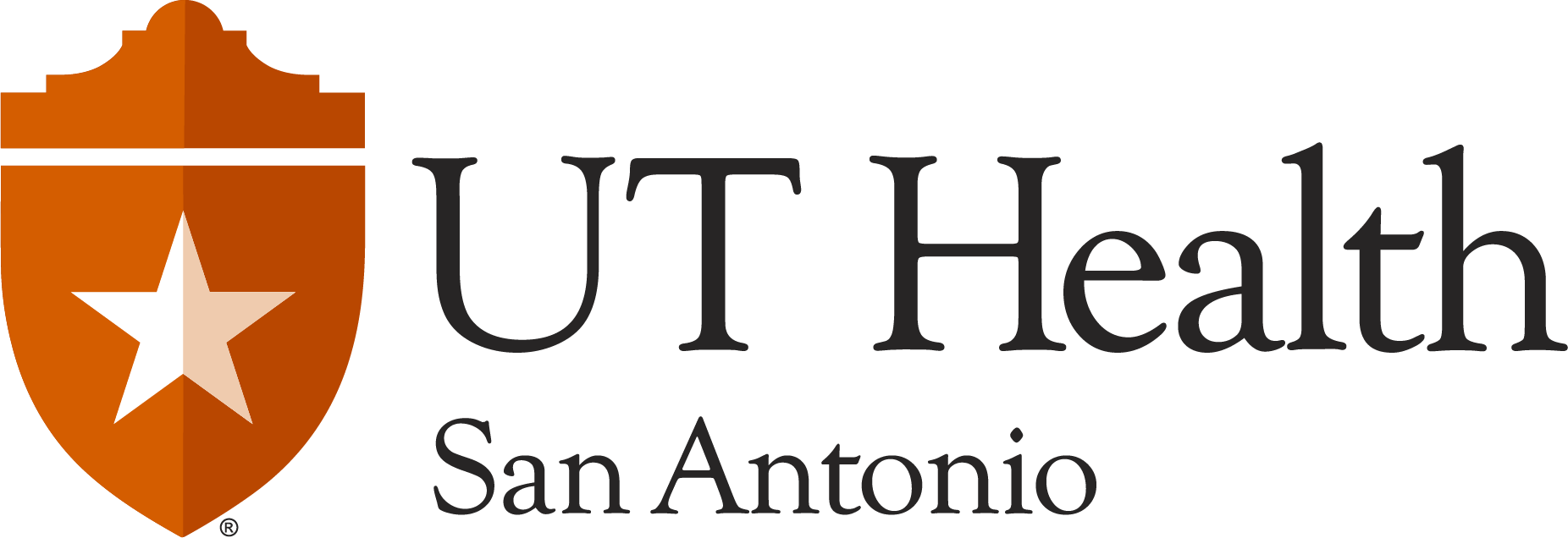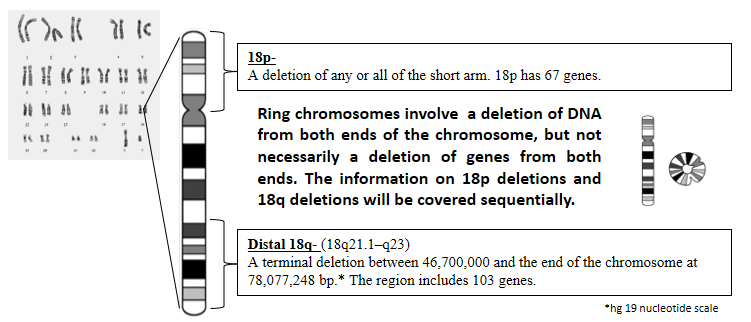ICD-10 = Q99.9 or Q93.89
These recommendations are inclusive of the entire population of people with Distal 18q deletions even though each person has a unique deletion. Therefore each person’s deletion could have different genes that are hemizygous. The specific hemizygous genes for an individual patient will dictate the probability of particular phenotypes. Guidance for creating an individualized plan for evaluation and management based on the person’s specific deletion can be found in the next section. However, the information in this document encompasses the global distal 18q- evaluation and management plan.
Potential conditions in a neonate
- Structural
- Hernias (inguinal, umbilical)
- Cryptorchidism, chordee, and hypospadias
in >50% of males - Palate abnormality
- Functional
- Respiratory and feeding difficulties
- Hypotonia
- Biochemical
- Jaundice
Initial evaluations after diagnosis
- Cardiology evaluation – 29% have cardiac defects
- Orthopedic exam – 74% with foot defects
- Otolaryngology including audiology evaluation
>50% with hearing loss - Thyroid levels – 15% with hypothyroidism
- Renal ultrasound -18% with reflux or malformations
- Ophthalmology exam – 72% with optic problems
- Genitourinary
- Neurology/cerebral MRI evaluation
- Pediatric anesthesiology if surgery is indicated
Referrals to
- Appropriate sub-specialist as indicated
by initial evaluations - Genetics Follow-up
- Parents genotyped for balanced
rearrangements
- Parents genotyped for balanced
- Early intervention/developmental services
- The Chromosome 18 Registry & Research Society
- The Chromosome 18 Clinical Research Center
Closely monitor and manage
- Failure to thrive/growth failure
- Weight gain
- Linear growth
- Sinus/ear infections
- Genitourinary
- Reflux
- Immunology/Rheumatology
- IgA deficiency
- Atopic disorders
- Arthritis
- Other autoimmune conditions
- Neurology
- Seizure disorder
- Intention tremors
- Hypotonia
- Orthopedics
- Scoliosis or kyphosis
- Development
- Milestones
- School performance
- Behavioral/mood changes
- Annual Screenings
- Thyroid
- Vision
- Hearing


